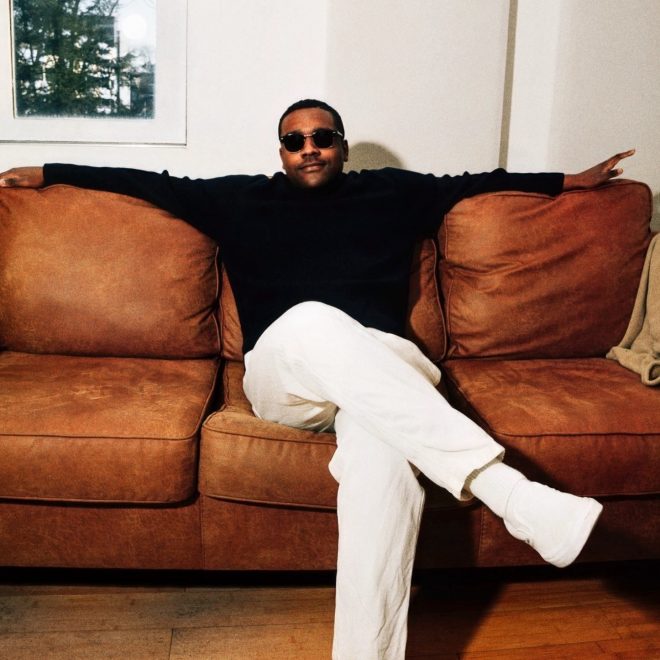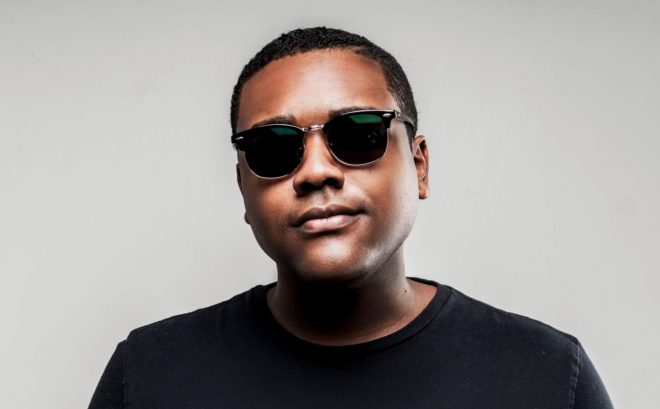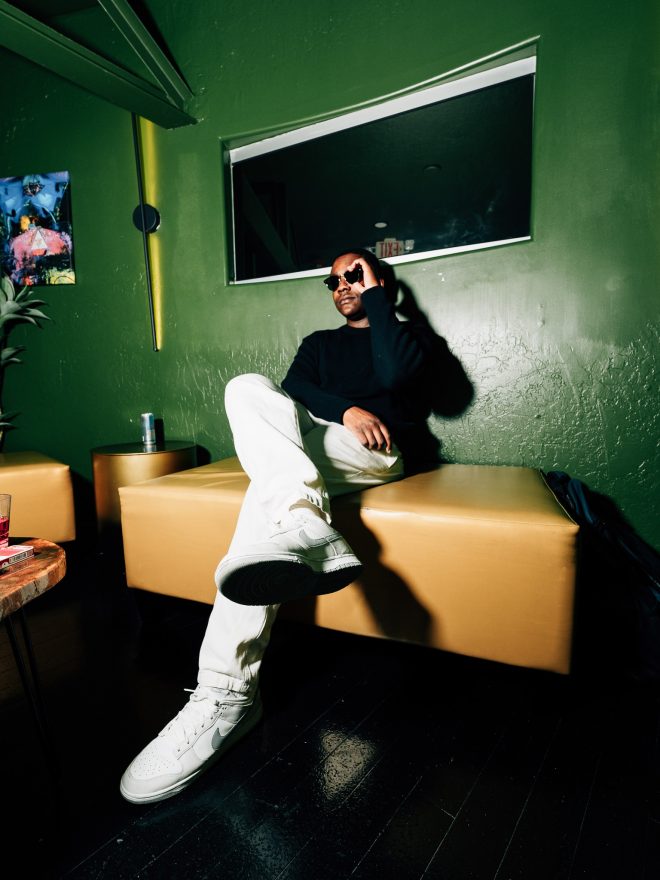Merchant isn’t chasing trends, he’s building a riddim that remembers where it came from

Ph: Slater Howard
The beat doesn’t lie. Not in Jamaica. Not in the diaspora. Not when you’ve grown up with zinc roofs humming in the rain, sound systems rattling through walls, and the unshakable instinct that rhythm is a form of resistance. For Merchant, that instinct is everything.
With “GYAL” (out now with Manu and Korie Minors), the Kingston-born producer delves deeper into his language, one rooted in the Afro-Caribbean feminine, exploring flirtation as a form of freedom and dance as a cultural memory. It’s not a track designed to impress tastemakers; it’s built to move hips and stir something older.
“‘GYAL’ is for the women who lead the dance, soft, powerful, undeniable,” he says. “I wanted the riddim to feel like home, but land anywhere, Mykonos, Lagos, London. Carnival in the club.”
Manu lays the percussive architecture, Korie Minors contributes on production, and Merchant carves out the space between, where sweat meets spirit. It’s a blueprint for the kind of genre-bending he's quietly been pioneering, even as Afro House expands in every direction.
DANCEHALL IN THE DNA, SPIRIT IN THE SIGNAL
Merchant doesn’t position himself as a purist, but his sense of place is undeniable. Jamaican culture, and specifically its resistance ritual, are etched into everything he touches. The way the drums swing. The basslines that stretch. The unspoken call-and-response between past and present.
“I still sample riddims from when I was a kid,” he says. “But I’m building them for today. You might hear Berlin synths, but the skeleton is straight Kingston.”
His catalog balances history with heat. It doesn’t fetishize tradition, but it doesn’t forget it either. Even his edits, underground favorites that have traveled far without major backing, carry something sacred in their muscle memory. Some call it spiritual. He calls it listening closely.
“Some of it I design, some of it just shows up like I’m catching a signal that’s bigger than me,” he says. “That’s the part you don’t learn. You just feel it.”

Ph: Nickii Kane
THE LONG GAME, NO SHORTCUTS
Without a label or co-sign to kickstart the ride, Merchant’s built everything on slow-burn momentum, uploading at 2 am, cold-messaging DJs, investing in the sound before it paid him back. The payoff? Edits spun by Pete Tong. A remix of “Miracle” blasting from Coachella’s YUMA tent. Crowds moving to beats they didn’t know came from Kingston.
“I wasn’t even supposed to be there. Just a kid in the crowd when I heard the drums hit. My whole body shook. I knew it was mine.”
That moment didn’t break him through. But it told him , and everyone else , that he already had.

Ph: Slater Howard
BUILDING BRIDGES, NOT SCENES
Where many artists chase scenes, Merchant is thinking in centuries. He’s not interested in feeding a wave; he’s trying to bend it. Lovers Rock with Afro Tech edge? Yes. Deep collaborations across the Caribbean archipelago? Absolutely. And always, the central question: how do we globalize without dilution?
“My goal isn’t just to get played, it’s to expand the map,” he says. “I want island music in every room. And I want it to sound like it never forgot where it came from.”
What he’s building isn’t a moment. It’s a sound system philosophy. Piece by piece, beat by beat, Merchant is making sure the next wave of Afro-Caribbean music doesn’t just hit harder, it hits home.
There’s a quiet strength that runs through Merchant’s story, the kind that doesn’t rely on volume, but on vision. He isn’t interested in chasing trends or appeasing gatekeepers. Instead, he’s carving out space on his terms, grounding every decision in culture, memory, and movement. His Jamaican roots aren’t just a reference point; they’re the rhythmic and spiritual architecture of his sound. In a landscape where artists are often pulled in every direction, Merchant stays rooted, not static, but anchored.
He speaks not with bravado, but with a confidence earned through intention and persistence. There’s no illusion of overnight success here, only late nights, hard lessons, and a commitment to something larger than himself. His work is at once deeply personal and defiantly global; it's filled with ancestral echoes yet designed for dancefloors from Coachella to Accra. And even as he plays the long game, his sound is already speaking volumes, not just to the industry, but to anyone listening closely.
He’s a builder, not a borrower. A translator of rhythm, history, and heat. And as Afro-Caribbean House continues to evolve, artists like Merchant ensure that its roots remain alive, unfiltered, and unmistakably present, not in a nostalgic sense, but as living, breathing futures in motion.


